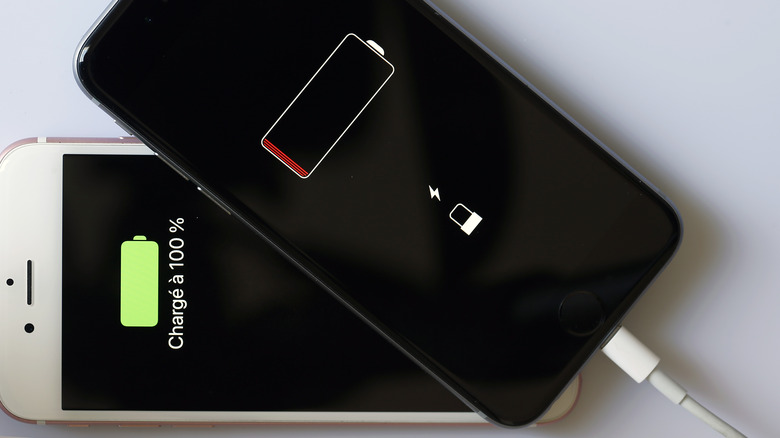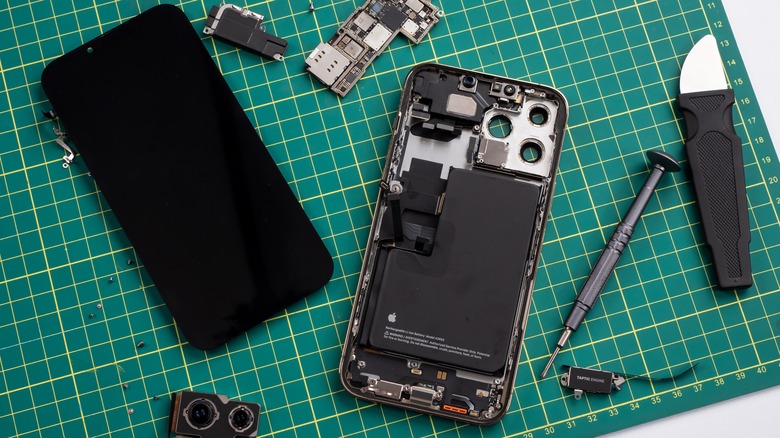Is It Really Possible To Overcharge Your iPhone Battery?
There was a time when lithium-ion batteries were particularly delicate. Well, not that they aren't anymore, so much as many improvements have been made to both the batteries themselves and the charging technologies underpinning them as they've become more and more of a part of our daily lives. Past issues, like having to be incredibly picky about what charger is completely safe to use with your phone, have largely fallen to the wayside thanks to the widespread adoption of USB Power Delivery as a common standard.
One problem that owners of smartphones and other portable electronic devices had to be keenly aware of in the past was the possibility of overcharging the battery. If a lithium-ion battery is overcharged, it can start to expand and become prone to exploding and/or catching fire. Even if it doesn't get to that point, overcharging can still do serious damage to a battery's lifespan. But is this still a reasonable concern in 2023, whether on the iPhone or in general?
Most devices have overcharging protection now
The answer is that no, you can't overcharge your iPhone's battery. The battery circuitry, the charging standards, and the device software are all expertly calibrated to make sure that does not happen. You don't need to do anything. You can plug your iPhone in when you go to bed and not panic that you left it plugged in for too long when you wake up and realize it's been at 100% for four to six hours. Apple's guide to maximizing your battery life and lifespan doesn't mention overcharging at all, as it's just not an issue anymore.
Having said that, the "trickle charge" that helps protect the battery by letting it drop slightly from 100% and then bringing it back to 100% over and over again does raise battery temperatures and can contribute to a reduced battery lifespan. That doesn't mean you shouldn't let this happen as much as it's something to be aware of.
Overcharge protection circuits can fail and have even failed on occasional iOS devices in the past. Those cases are extreme outliers, though.

